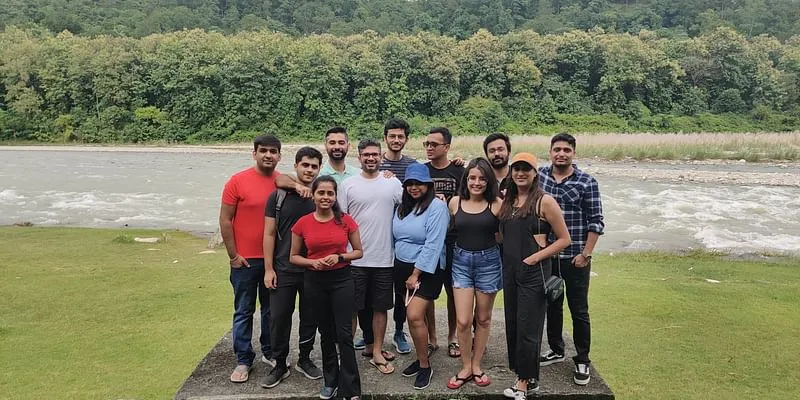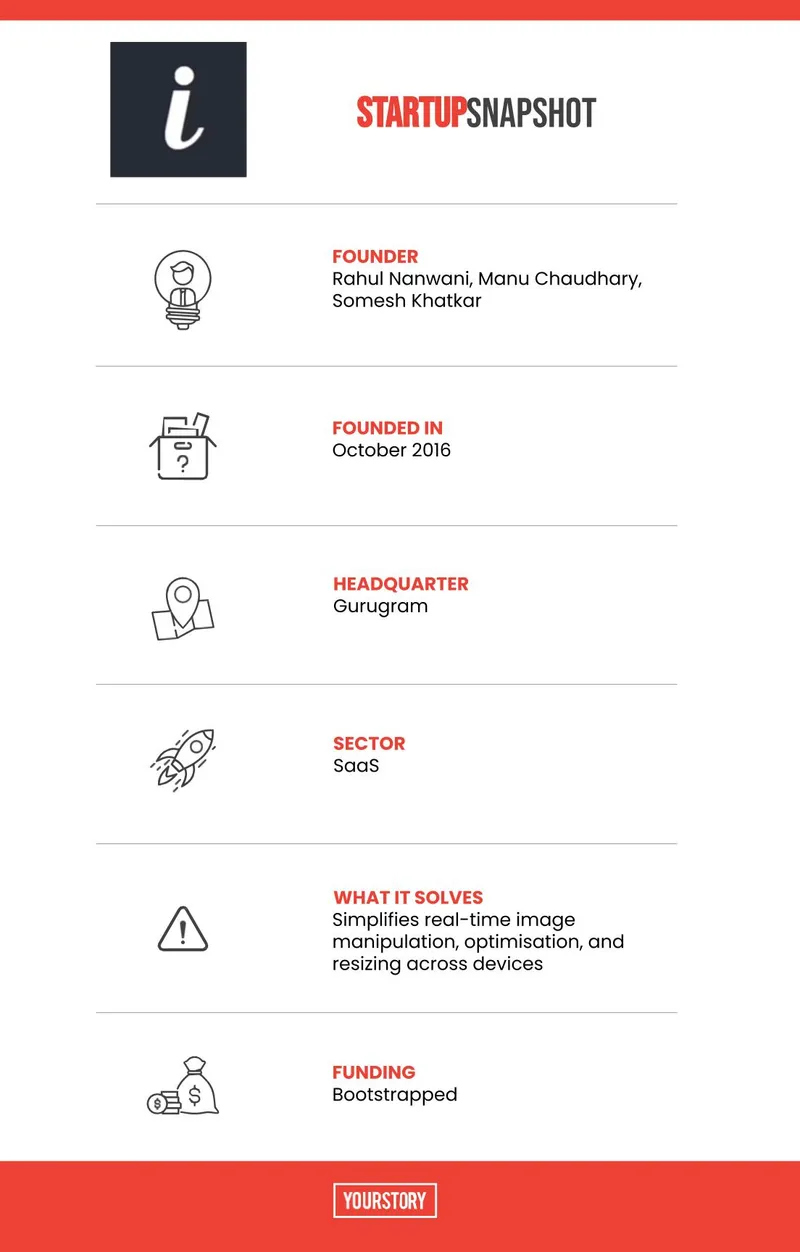This SaaS startup is helping Nykaa, BigBasket, and other enterprises optimise images and videos in real time
Launched in October 2016, ImageKit’s SaaS product simplifies real-time image manipulation, optimisation, and resizing across devices. The plug-and-play offering is being used by 750 companies and 50,000 small businesses in more than 60 countries.
When it comes to the internet, speed is everything. Numerous studies show that the average internet user expects a website to load within two seconds and will abandon it if it fails to load in three seconds.
With most websites – be it ecommerce, media, or travel - going heavy on images, the only solution seems to be web acceleration. The first step? Image optimisation.
Rahul Nanwani, CEO and Co-founder, , says a picture is “worth a thousand words”. But, on the web, it doesn’t do much if it isn’t optimised.
Rahul, Manu Chaudhary, and Somesh Khatkar, who earlier worked together at online travel platform Ixigo, realised that there were very few ready-made image optimisation products in the market, and that “most available products didn’t integrate easily into a company’s existing infrastructure”.
To address these problems, they launched intelligent image optimisation platform in October 2016. The MVP was readied in three months and they launched their flagship solution in January 2017.
Started with an initial investment of Rs 1.5 lakh, the startup’s current revenue is in the $2-3 million ARR range. The clientele includes 750 paying companies in over 60 countries along with 60,000 small and individual businesses/developers in more than 100 countries.
The journey so far
The founders saved their initial investment by working on a side project where they developed a website for a third party. The capital was used to incorporate the company and manage legal expenses.
“We kept working on side projects in the first six months, mostly related to web development or cloud migrations, which helped us earn over Rs 8 lakh. All this was invested back into the business to pay server costs, co-working space expenses, etc. Apart from the above investment in the business, all founders had savings to provide a runway for nine to 12 months on no salary,” Rahul recalls.
The startup claims to have reached gross profitability in April 2017.

Team ImageKit
“Six months after starting the business, we reached gross profitability (customer revenue being able to cover server costs, cloud costs). We started drawing a small salary in June 2017 and stopped doing any side projects. Since then, on an average, we have been doubling business every 12 months. We have maintained 13-15 percent net profitability (after tax) every year except for the first financial year filing (October 2016 to March 2017),” Rahul says.
Focusing on the product
The Gurugram-based startup’s initial product was very basic – it could convert images to the right format in most cases, compress them, provide basic transformations like resize and cropping in real time along with a basic storage for image uploads.
“This was for most of 2017 where we added more stability to these feature sets and small upgrades,” Rahul says.
Currently, ImageKit has added more complex transformations and integrations, including support for integration with any popular cloud storage and integration with any public content delivery network (CDN). Added security features like private images, new image format support like AVIF, and video optimisations and URL-based transformations in real time are also catered for.
The image optimisation startup has also expanded its processing network to six regions, including North California, North Virginia, Singapore, Frankfurt, Sydney, and Mumbai.
“In the last one year, we have made significant advancement in media management and video delivery. ImageKit can now also optimise and resize videos in real time, just like we did for images. In media management, the basic storage that we had now supports AI-based tagging, advanced searching, operations such as copy, move, rename, and extensive developer API support,” Rahul says.

YS Design Team
The platform offers a forever-free plan, which includes all the features with a limit on usage. A user with the free plan gets 20 GB of bandwidth free every month. As many as 60,000 developers or small businesses are using this plan.
The paid plan costs $49, the base charge; post this, customers pay per unit usage.
The key focus areas the founders considered before any rollout were simple:
- Easy to start using, even for someone operating at a multimillion user base or for a small business.
- Get the defaults right. Don’t force the user to make a lot of changes (or any change at all).
- Fair pricing so users pay for what they use.
Market size and competition
The media processing/delivery solutions industry is expected to grow to $38 billion by 2028. In addition to this, the digital asset management market is expected to grow over $6 billion by 2025.
“Our image and video processing along with our media library solution aims to targets this market. We are currently a small player in this overall market,” Rahul says.
Imagekit competes with the likes of Cloudinary, Imgix, Sirv, and Gumlet.
With offices in Delhi-NCR (India) and Delaware (USA), the company serves brands such as , , , Times Now, TravelOka, Noon, and Weltbild among others.
Speaking about their differentiator, Rahul says, “We are the first platform to have both media management and external storage/CDN integrations available in the same product. Except Cloudinary, we are one of the few companies to be able to offer video optimisations and URL-based transformations in real-time. We have the widest processing network (six regions), cloud integrations, and external CDN integrations.”
With the launch of Video API, ImageKit is looking to expand its offerings to optimise and resize videos in real time.
“We are planning to expand our footprint further in this market,” Rahul says.








